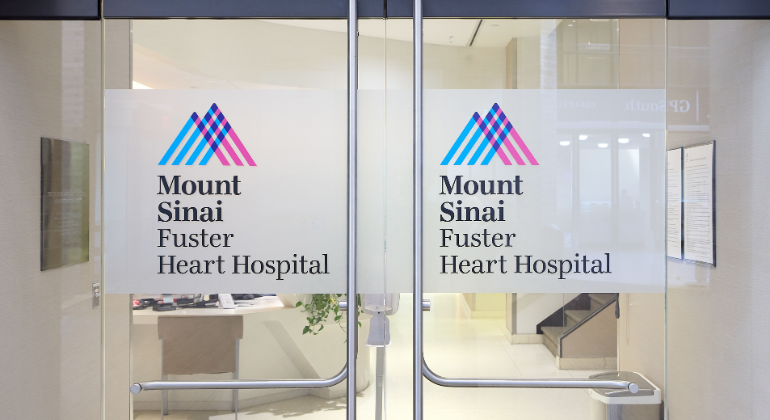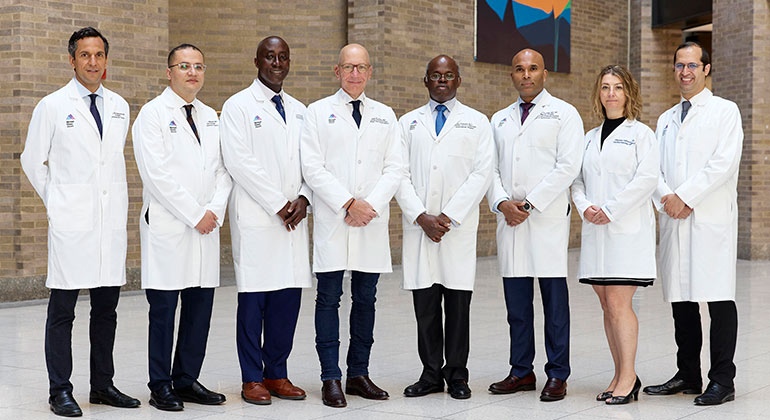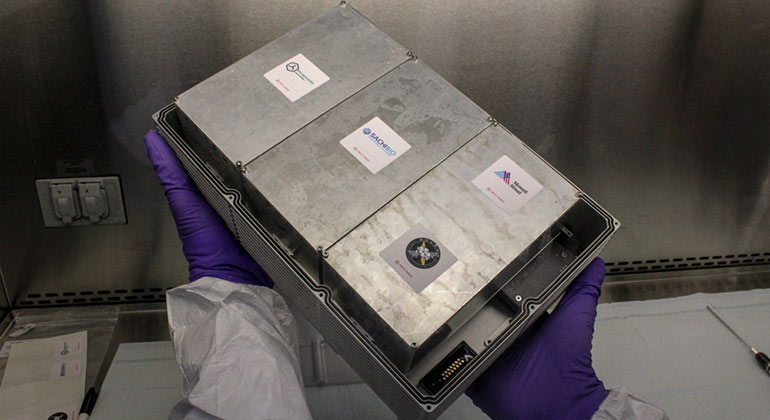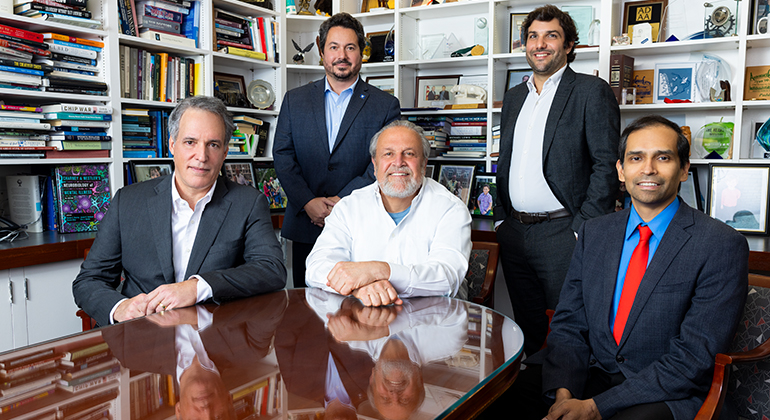Patient Volume Found to be a Mild Indicator of Hospital Performance for Three Common Conditions
High volume hospitals performed marginally better in treating three common conditions
Patient volume has been found to be only a mild indicator of hospital performance in the treatment of three common conditions, according to a new study in the current edition of the New England Journal of Medicine.
A team of researchers led by Joseph Ross, MD, MHS, Assistant Professor of Geriatrics and Palliative Medicine and of Medicine at Mount Sinai School of Medicine, examined mortality rates at low, medium and high volume hospitals for patients treated for acute myocardial infarction (heart attack), heart failure, and pneumonia. The researchers found that while hospitals with higher patient volume performed marginally better than lower volume hospitals, performance peaked at relatively low patient volumes and treating more patients beyond those levels did not result in even further reduced mortality rates.
“Though higher patient volume has been associated with lower hospital mortality for numerous surgical conditions and medical procedures, it has been unclear whether hospital patient volume may be a similar indicator for acute medical care,” said Dr. Ross. “Our findings highlight that, unlike with surgery and procedures, patient volume is a weak indicator of clinical outcomes for acute medical conditions.
“Several organizations have suggested that hospital volume be used by patients to identify hospitals that provide the best quality of care. However, in the study there was a wide range of performance among small hospitals and substantial overlap of performance between small, medium and large hospitals,” said Dr. Ross. “Moreover, among hospitals with greater volumes, a threshold was reached where greater annual volume was not predicted to be associated with lower mortality. Future research should be focused on identifying strategies used at higher quality hospitals to improve the quality of care.”
The researchers analyzed Medicare administrative claims data for all fee-for-service beneficiaries hospitalized between 2004 and 2006 in U.S. acute-care hospitals for acute myocardial infarction, heart failure, or pneumonia. Using hierarchical logistic models for each condition, they then estimated the change in patient odds of 30-day mortality associated with increasing annual hospital volume by 100 cases. Analyses were adjusted for patient risk factors and hospital characteristics.
In the study period there were 734,972 hospitalizations for acute myocardial infarction in 4,128 hospitals; 1,324,287 for heart failure in 4,679 hospitals; and 1,418,252 for pneumonia in 4,673 hospitals. For acute myocardial infarction, once hospital annual volume reached 610 patients increasing hospital volume by 100 cases no longer significantly lowered a patient’s odds of death. The volume-threshold for heart failure hospitalizations was 500 and for pneumonia was 210 hospitalizations.
Dr. Ross said, “This study shows that health policies such as regionalization that are intended to universally increase hospital volume in an effort to lower mortality rates should not be expected to have uniform benefits. Large hospitals may have the financial capacity to justify employing clinical teams whose sole responsibility is to manage commonly treated conditions through disease management and discharge programs. Small hospitals may need additional support to ensure that effective strategies are available at all hospitals.”
About The Mount Sinai Medical Center
The Mount Sinai Medical Center encompasses The Mount Sinai Hospital and Mount Sinai School of Medicine. The Mount Sinai Hospital is one of the nation’s oldest, largest and most-respected voluntary hospitals. Founded in 1852, Mount Sinai today is a 1,171-bed tertiary-care teaching facility that is internationally acclaimed for excellence in clinical care. Last year, nearly 60,000 people were treated at Mount Sinai as inpatients, and there were nearly 450,000 outpatient visits to the Medical Center.
Mount Sinai School of Medicine is internationally recognized as a leader in groundbreaking clinical and basic science research, as well as having an innovative approach to medical education. With a faculty of more than 3,400 in 38 clinical and basic science departments and centers, Mount Sinai ranks among the top 20 medical schools in receipt of National Institute of Health (NIH) grants. For more information, please visit www.mountsinai.org.
About the Mount Sinai Health System
Mount Sinai Health System is one of the largest academic medical systems in the New York metro area, with 48,000 employees working across seven hospitals, more than 400 outpatient practices, more than 600 research and clinical labs, a school of nursing, and a leading school of medicine and graduate education. Mount Sinai advances health for all people, everywhere, by taking on the most complex health care challenges of our time—discovering and applying new scientific learning and knowledge; developing safer, more effective treatments; educating the next generation of medical leaders and innovators; and supporting local communities by delivering high-quality care to all who need it.
Through the integration of its hospitals, labs, and schools, Mount Sinai offers comprehensive health care solutions from birth through geriatrics, leveraging innovative approaches such as artificial intelligence and informatics while keeping patients’ medical and emotional needs at the center of all treatment. The Health System includes approximately 9,000 primary and specialty care physicians and 11 free-standing joint-venture centers throughout the five boroughs of New York City, Westchester, Long Island, and Florida. Hospitals within the System are consistently ranked by Newsweek’s® “The World’s Best Smart Hospitals, Best in State Hospitals, World Best Hospitals and Best Specialty Hospitals” and by U.S. News & World Report's® “Best Hospitals” and “Best Children’s Hospitals.” The Mount Sinai Hospital is on the U.S. News & World Report® “Best Hospitals” Honor Roll for 2024-2025.
For more information, visit https://www.mountsinai.org or find Mount Sinai on Facebook, Instagram, LinkedIn, X, and YouTube.

Skipping Breakfast May Compromise the Immune System
Feb 23, 2023 View All Press Releases
Valentin Fuster, MD, PhD, Receives Prestigious Award from City of Barcelona, Spain
Jan 23, 2023 View All Press Releases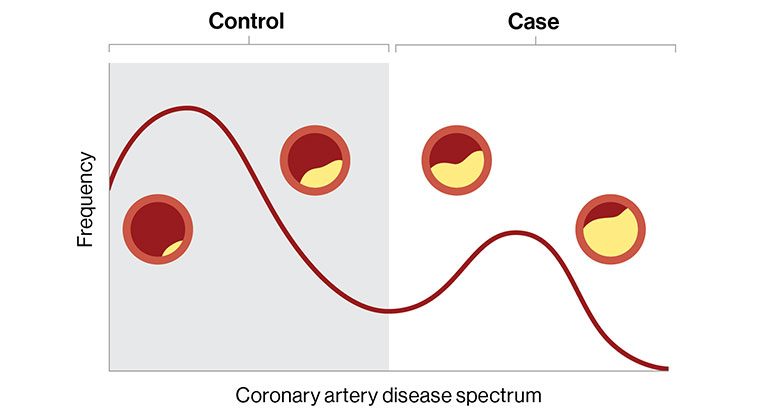
Digital Marker for Coronary Artery Disease Built by Researchers at Mount Sinai
Dec 20, 2022 View All Press Releases